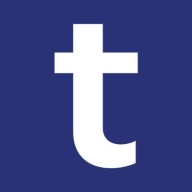

Pega Platform and Temenos Quantum compete in the enterprise technology sector, each excelling in distinct areas. Pega has the upper hand in case management and integration projects, while Temenos is strong in digital transformation for mobile and web platforms.
Features: Pega Platform is highly valued for its case management, robust integration services, and low-code environment, which accelerates application development and offers multi-channel abilities. Temenos Quantum is praised for its user-friendliness, customizability, and seamless backend integration, supporting digital transformations across mobile and web platforms.
Room for Improvement: Pega Platform could enhance its user interface, cloud presence, and AI capabilities, while addressing its costly pricing for small to mid-sized businesses. Temenos Quantum should improve widget flexibility, stability, and increase community resources to reduce reliance on technical support.
Ease of Deployment and Customer Service: Pega Platform provides flexible deployment options across on-premises, public, and hybrid clouds, backed by a widespread support network, although complex issues can affect response times. Temenos Quantum offers intuitive setup but faces mixed feedback on its slower and costlier customer support.
Pricing and ROI: Pega Platform, despite its high cost, delivers substantial ROI through process enhancement and savings in large projects. Temenos Quantum competes with pricing tailored for mobile and web development, achieving cost-effective scalability and delivering solid ROI, especially for budget-conscious digital transformations.
I estimate that projects take days rather than weeks when using Pega Platform compared to traditional coding.
Pega Platform has positively impacted my organization, as they were using different technology before and have seen tremendous success and return on investment, so they are very happy.
The technical support from Pega is very low, rating a one or two out of ten.
I never needed support from the platform standpoint, but if additional features are required, we have regular meetings with the product team for feedback.
Pega's technical support team is very helpful.
Currently, big banking providers and insurance providers, even the members for healthcare payers, are using more than millions of operations on a daily or weekly basis.
For customer interactions, while the Pega Platform's AI-based decisioning and predictive analytics are great, the Process AI is not very popular yet, as it works on process data rather than customer data.
There are always areas for improvement, which they are addressing in every part of the patch releases.
Pega introduced Constellation, which allows a user to build a more engaging visual experience.
Pega is priced higher than open-source options like Flowable but is suitable for large-scale industries like banking and insurance.
The pricing is expensive, and this is an issue.
From a licensing perspective, it is higher than the competition.
With Pega Platform, the development process becomes faster. For example, coding an application can take a couple of weeks or months but can be done in weeks using Pega Platform.
Pega Platform is excellent for enterprise-level solutions with integrations to entire systems, including case management, service orchestration, CRM, decision-making capabilities, digital process automation, and AI-driven functionalities.
Management capabilities such as dashboards.
| Product | Market Share (%) |
|---|---|
| Pega Platform | 5.6% |
| Temenos Quantum | 1.3% |
| Other | 93.1% |


| Company Size | Count |
|---|---|
| Small Business | 11 |
| Midsize Enterprise | 16 |
| Large Enterprise | 69 |
| Company Size | Count |
|---|---|
| Small Business | 4 |
| Midsize Enterprise | 2 |
| Large Enterprise | 10 |
Pega Platform provides flexible business process management with a focus on rapid application development and automation through a low-code approach, enhancing efficiency across sectors.
Pega Platform is renowned for its ability to streamline operations with robust automation features, including robotic process automation and decision-making capabilities. Its intuitive interface and workflow management contribute to a reputation for enhancing business processes. Although users face challenges with integration limitations and high licensing costs, they benefit from rapid deployment and efficient process adaptations. The unified architecture reduces complexity, while case management and integration services support digital transformations in sectors such as banking, insurance, and healthcare.
What are the key features of Pega Platform?
What benefits and ROI should users expect?
In industries like insurance, banking, healthcare, and government, Pega Platform is implemented to automate diverse workflows, supporting initiatives from claims processing to customer onboarding. Enterprises use Pega for case management and digital transformations, valuing its out-of-the-box integrations and real-time reporting capabilities to boost operational automation and enhance customer experiences.
Temenos Quantum is a Multiexperience Development Platform (MXDP) that combines ease-of-use and speed of low-code productivity with deep enterprise capabilities for both consumer grade digital experiences across multiple touchpoints and robust backend services for identity, integration, orchestration, business process automation, and business rules management.
We monitor all Rapid Application Development Software reviews to prevent fraudulent reviews and keep review quality high. We do not post reviews by company employees or direct competitors. We validate each review for authenticity via cross-reference with LinkedIn, and personal follow-up with the reviewer when necessary.